Oil palm is an essential food item and is in high demand as every part of the tree is useful economically and for domestic purposes. However, running a profitable oil palm production business requires having sufficient information about it. Given that, on our free online training that held on the 21st of June, 2020, we had our facilitator share his knowledge and experience on oil palm production in Nigeria.
Facilitator: Olanisimi Babatunde
Olanisimi Babatunde is an agriculturist, an agriculture-mogul, and advocate for a resilient Africa. He is fond of doing research and an expert in handling cargo.
With experience in agriculture for more than seven years, he has practised skills in crop farming and the likes.
He is also an expert in plantain process and management.
Olanisimi Babatunde is the manager of BOOM Cargo express.
He discussed oil palm production under the following sub-topics;
- Introduction
- Cultivars and Varieties
- Harvesting and Extraction of Oil Palm
- Pests, Diseases, and Constraints of Oil Palm Production
Introduction
Oil palm (Elaeis guineensis) is a tropical tree crop which is mainly grown for the industrial production of vegetative oil. It is a typical estate crop, grown and harvested over large uniform areas (3,000 to 5,000 hectare), around a central oil mill to allow rapid industrial handling after harvesting. Palm trees are also present in village gardens where they provide oil for local consumption, but in that case, both yield and oil quality are much lower.
Oil palm is a typical crop of the rainy tropical lowlands. The tree requires a deep soil, a relatively stable high temperature and continuous moisture throughout the year. Soil fertility is less important than physical soil properties. Dry periods of more than 2-3 months do not specifically damage vegetative growth but affect the production and quality of the fruit bunches.
Oil palm yield is not only determined by vegetative growth and production, but also by the way and pests and diseases can be controlled or eradicated.
Because industrial oil palm plantations need the clearance of large areas, they often require the expropriation of land and the cutting of extensive (pristine) forest areas. Hence, the development of such plantations usually associates with land tenure conflicts and problems of local land ownership on one hand and ecological problems such as biodiversity loss, on the other hand.
Cultivars and Varieties

Cultivars in the strict sense do not occur. As the oil palm is monoecious and cross-pollinated, individual palms are usually very heterozygous; and vegetatively propagated clonal material can not be made.
The current classification of cultivars is mainly based on fruit structure and yield (or commercial value) and they include:
- Macrocaria: shell (endocarp) 6-8mm thick; is an extreme form of Dura, which is still widely spread in Sierra Leone and western Nigeria; without any commercial value;
- Dura: shell 2-8mm thick, comprising 25-55% of the weight of fruit, medium mesocarp content of 35-55% by weight, but up to 65% in Deli palms; less productive but hardy variety, well adapted to village gardens;
- Pisifera: shell-less, with small pea-like kernels in fertile fruits; of little commercial value, because of its high abortion ratio, but important for cross-breeding commercial palms;
- Tenera: shell 0.5-3mm thick; comprising 1-32% of the weight of fruit; medium to high mesocarp content of 60-95%, but occasionally as low as 55%; this variety is the result of a hybridization of Dura and Pisifera, and has a high commercial value. Most commercial plantations are established based on Tenera palms.
Harvesting and Extraction of Oil Palm

Oil palms may live up to 200 years, but their commercial yield rapidly decreases after 30 years of age. They can be harvested manually with the aid of cutlass and the use of a simple machine (Malaysia knife).
The extraction of palm oil from FFB is by a semi-continuous process. Four stages of processing can be distinguished;
- Sterilization,
- Bunch Stripping,
- Oil Extraction
- Oil Clarification and Purification.
In sterilization, the FFB is subjected to live steam under a pressure of 35-45 lbs/sg for fifty to seventy-five minutes. The purpose of the sterilization is to deactivate the enzymes responsible for the breakdown of oil into FFA. This helps to loosen fruit from bunches and coagulate mucilage so that oil can be recovered later in the process without recourse to conditions which would oxidize the oil. Great care is taken during sterilization to exclude air which interferes with sterilization efficiency and may cause oxidization of the oil.
In the second stage of processing, sterilized bunches are fed continuously into a rotary drum threshing or stripping machine which strips and separates the fruit from bunches.
Loose fruit passes through gaps between channel bars running longitudinally along with the drum, while empty bunches are eventually discharged at the end of the drum for incineration.
After stripping, the fruit is fed continuously into a digester where it is stirred by a series of rotating arms. Digestion converts fruit to a homogeneous oily mash suitable for processing.
The digested mash is then fed into a press for extraction of crude oil under pressure which is applied either hydraulically or through a worm-screw. The crude oil at this stage consists of a mixture of oil, water and some fine solid material.
This mixture is passed to a continuous separating system, from which the oil-rich layer is fed to a centrifugal purifier to remove solid matter and some moisture.
Finally, the oil is dried to a moisture content of below 0.1%. Vacuum driers are preferred since they allow the oil to be dried at a lower temperature in the absence of air, thus reducing the risk of oxidization. Such care to avoid oxidization is exercised throughout the process.
Furthermore, efforts are made to minimize contamination of the oil with copper by avoiding the use of copper, the brass or bronze fittings in pipelines and other places which come into contact with the oil.
Pests, Disease, and Constraints in Oil Palm Production

Pests
- Grasscutter
- Mealybugs (Pineapple mealybug): Dysmicoccus brevipes
- Bat
- Rhinoceros beetle: Oryctes rhinoceros
Diseases
- Bacterial bud rot (Erwinia spp).
- Ganoderma butt rot (Ganoderma spp).
- Oil palm wilt (Fusarium oxysporum)
- Pestalotiopsis leaf spot (Pestalotiopsis spp).
Constraints
- Lack of land.
- Lack of fund.
- Inadequate information about oil palm cultivation.
Others include; - Land that is prevented from being converted to other uses such as built-up land.
- A land which is already used such as cropland and pasture land.
- Non-protected areas which are nevertheless important for biodiversity conservation and carbon storage.
Profitable oil palm production is about planting accurately and boosting your yield. And with the potential contributions of oil palm production, it is important to ensure its optimum sustainable development and processing.
Questions
Question: “What is the fastest-growing seedling to buy for someone who wants to go into cultivation? Also, which one is the more profitable kernel or oil production?” – Queenie
Response: Hybrid i.e the improved one. You must know what you want before going into the plantation. Whether kernel production purpose, oil production purpose or both. It’s your choice, you must know and have a reason before planting. It is not about planting Tenera. Anyone planting Tenera, for instance, can meet the market of the kernel. Your main reason why you want to plant helps to tell the varieties you go for. They are both good but some varieties can serve you the two. It is called dual purpose.

Question: “Thanks sir you only dwell on production, we expected a little from milling.? – Zakikurah Nhyandak
Response: Ok, the milling of oil production vary from local milling and the advance i.e use of a machine. For machines, there are different types, there are some that are used to press, compress it inside the machine and the oil is drawn out. We have an industrial one as well. The local one is done through washing in a bowl or an enclose pound then wash before cooking.
Question: “Can we have the Palm Oil belt (the state that palm oil can be planted)” – Olaide Olawuwo
Response: All southwest. All south as well. North Central is trying as well.
Question: “Which is the best for oil production” – Julie John
Response: Tenera 70% oil. Note that Tenera has different grade and that’s why you must always buy from a reliable source.
Question: “ Do you have the machines in Nigeria? About how much?”- Asopuru Okemgbo
Response: Yes, it depends on the type you want, size and capacity.
Question: “Thanks so much. How long does it take before harvest starts” – Yusuf
Response: 3 years and above.
Question: “To set a plantation how much would it cost me, sir do you do visibility, reports?” – Zakikurah Nhyandak
Response: Size of land determines that(Hectares or acres). The Varieties you want to plant.
Question: “Please is there any oil palm seed called supergene in Nigeria? What is the duration of fruiting of tenera sp from seed?” – Seun
Response: No. Three years above for Tenera but note that Tenera has grades.

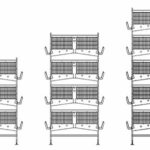


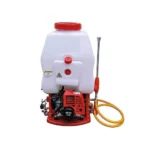
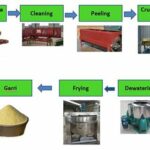
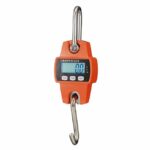
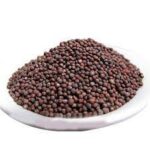






10 thoughts on “Oil Palm Production In Nigeria: What You Should Know”
Pls can u direct me how and we’re to buy palm oil quality one and when to buy at good rate
Hello Victoria,
Thank you for reaching out to us.
Kindly place a custom request for palm oil via the link;
https://afrimash.com/custom-request/
You can also reach out to us via:
Call: (+234) 809 409 1115
WhatsApp: (234) 808 280 8271
Thank you for choosing Afrimash.
How can I get palm trees
Hello Atiku,
Thank you for reaching out to us.
As regarding your enquiry, we only offer Oil Palm seedlings of two varieties. Tenera Oil palm Seedlings (9 months old) that attain maturity/fruiting at 4-5 years and Supergene Oil Palm seedlings (6 months) which fruit at 2 years.
One Tenera seedling goes for ₦450.00 while a seedling of Supergene variety goes for ₦1,250.00.
To place your order now, kindly click the link below:
https://afrimash.com/shop/plant-production-and-protection/crop-production/plant-seedlings/oil-palm-seedlings-hybrid-supergene-tenera-varieties/
You can also reach out to us via any of these channels;
You can also contact us via:
Call: (+234) 809 409 1115
WhatsApp: (234) 808 280 8271
Thank you for choosing Afrimash.
Is the price of seedlings still the same? This article was written in the year 2020. Are the information still reliable?
Hello Oluwaseun,
Thank you for reaching out to us.
The information in the article are still valid and reliable. However, there has been changes in prices of oil palm seedlings.
One Tenera seedling now goes for ₦700.00 while the price of a seedling of Supergene variety is ₦1,400.00.
To place your order now, kindly click here or reach out to us via call or whatsapp at 08094091115
Thank you for choosing Afrimash.
Please what’s the cost of tenera seedlings now?
Also what’s the spacing for transplanting of tenera seedlings on the farm?
Thank you.
Dear Abba Owoicho,
Thank you for reaching out to us
As regards your enquiry, you can check the recent price of Tenera Palm Seedlings via the link below:
https://afrimash.com/shop/afrimash-crop-section/crop-products/tenera-palm-seedlings/
Want to know more about palm oil plantation ,I want to invest in it thanks
Oil palm is an essential food item and is in high demand as every part of the tree is useful economically and for domestic purposes . My blog published similar post on Palm Oil. Take Your time and pay a visit to my blog By CLICKING HERE